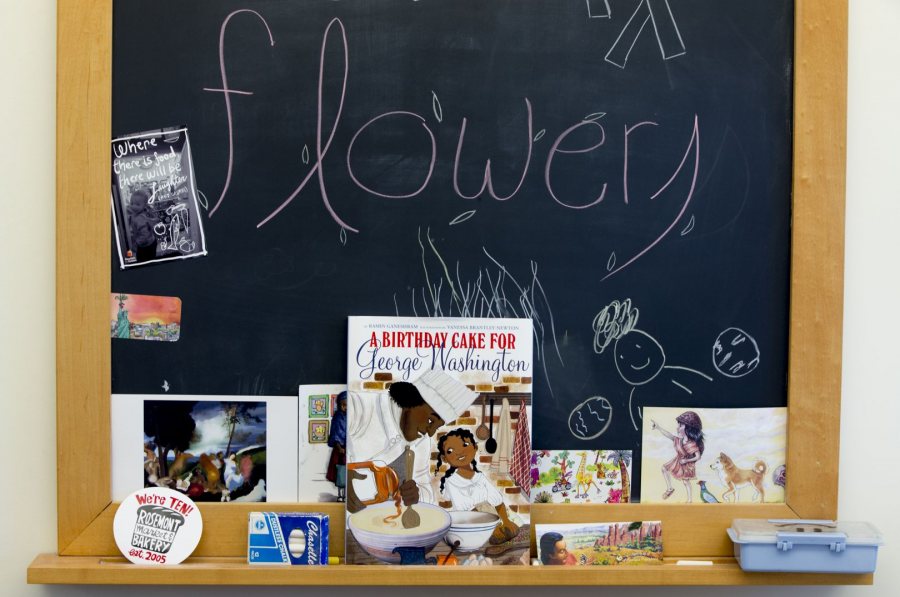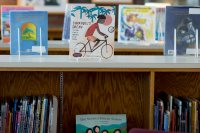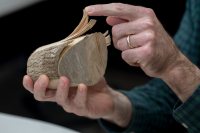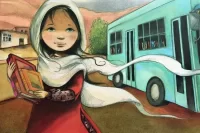
Associate Professor of Psychology Krista Aronson has a copy of the children’s book A Birthday Cake for George Washington on a shelf in her third-floor Pettengill Hall office — but she doesn’t necessarily want your child reading it.
Written by Ramin Ganeshram and illustrated by Vanessa Brantley-Newton, A Birthday Cake for George Washington tells a fanciful story about two real people: George Washington and one of his slaves, a chef named Hercules whose daughter narrates the tale. Published by Scholastic in January 2016, it was recalled 12 days later over criticisms for its dishonest portrayal of slavery.
For example, an often-published illustration from the book shows George Washington with his arm around Hercules after Washington has finished eating a cake made by his slave. “It depicts them kind of arm in arm, smiling at one another with affection, in a manner that’s historically dishonest,” says Aronson.
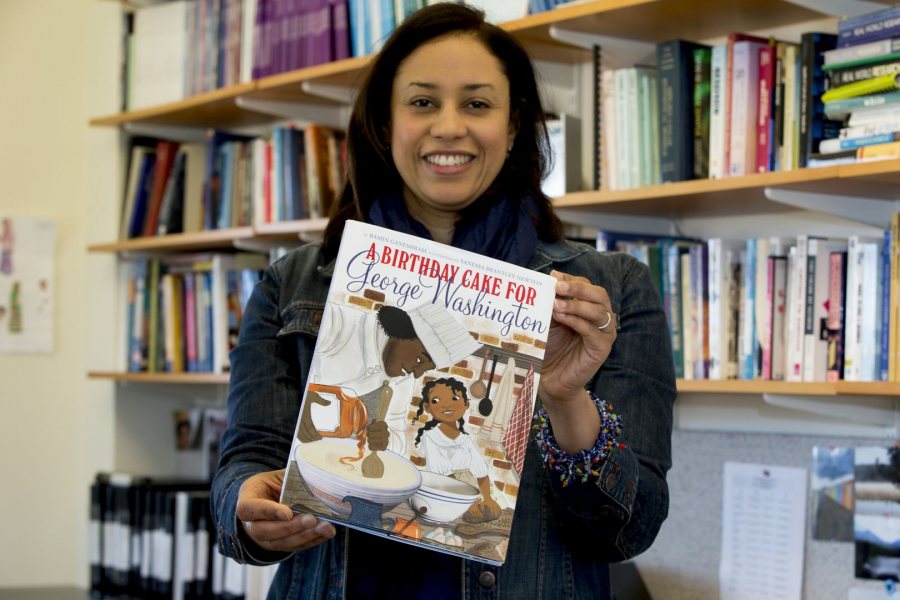
Associate Professor of Psychology Krista Aronson uses the recalled book A Birthday Cake for George Washington as a teaching tool. (Phyllis Graber Jensen/Bates College
Aronson is an expert in diverse children’s literature who co-founded the Picture Book Project, a one-of-a-kind collection of 1,500 children’s books in the Bates library published since 2002 featuring racially diverse characters.
“It is the only circulating library collection of its kind,” says Aronson, who co-founded the project with Brenna Callahan ’15, who devoted her thesis to the topic, and children’s book author Anne Sibley O’Brien.
While a stereotypical depiction of a “happy slave” is the well-known cause of A Birthday Cake’s downfall, the book helps Aronson teach her students about a wide range of ideas related to diverse picture books.
For example, there are ideas about “picture books as historical, social, and artistic artifacts, and the known disconnect between author and illustrator in the picture-book process,” she explains, not to mention “accuracy and authenticity within diverse picture books.”
The book also provides a platform for discussing the publishing industry and the challenges of publishing diverse books.
“Statistics indicate that the publishing industry is predominantly, if not nearly exclusively, white,” she says. “It’s hard to evaluate the quality of a diverse book when you don’t share that group’s history, experience and perspective. It’s really helpful in that regard for helping these issues come alive for students.”
The Birthday Cake episode offers a “moment for everyone to pause and think about what improvements we can make both to children’s literature and the publication process, and that’s what I focus on,” Aronson says.
She’s talked to Scholastic, and finds that making progress is what the publisher focuses on too. “How can we do this better next time?” Aronson asks. “I just want the books to come out, and the conversation to continue, and the books to improve.”
